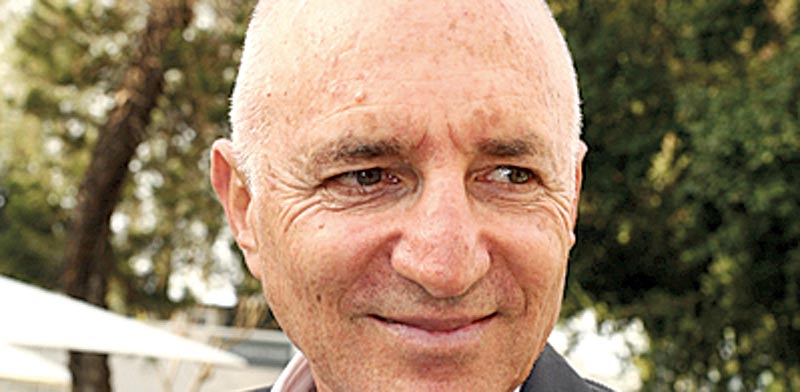
Israeli-Dutch medical stage biotech firm Prilenia Therapeutics has introduced a collaboration and licensing settlement for its lead drug Pridopidine, with Spanish pharmaceutical firm Ferrer. As a part of the settlement Prilenia will obtain €125 million in quick and near-term milestone funds and as much as €500 million total together with all milestone funds in addition to royalties if the product is improved and gross sales efficiently available on the market.
In change, Ferrer will obtain the rights to market the drug in Europe and different markets, whereas the US market will stay in Prilenia’s arms. This can be a comparatively excessive quantity that the corporate is receiving for an settlement that also leaves it accountable for the US market.
Pridopidine was delivered to Teva Pharmaceutical Industries Ltd. (NYSE: TEVA; TASE: TEVA) by Dr. Michael Hayden, who served as Teva’s director of progressive R&D beneath CEO Dr. Jeremy Levine. With the $40 billion acquisition of Actavis and Teva’s spiralling right into a money circulate disaster, the corporate determined to forgo a big a part of its improvement plans, together with this drug.
Prilenia CEO Dr. Hayden bought the event rights in change for restricted future royalties and based Prilenia along with a group of Teva veterans. He additionally based different firms that had been primarily based on Teva’s belongings or abilities (for instance, 89bio (Nasdaq: ETNB), which already has a market cap of $1.1 billion).
Pridopidine was initially supposed to deal with Huntington’s illness. Prilenia COO Limor Ben Har says, “Following the thorough work finished at Teva, it grew to become clear that the drug’s mechanism of motion is concerned in defending nerve cells from degeneration.” This made the drug related for extra indications in which there’s early nerve cell demise, akin to ALS.
Outcomes show potential
The corporate’s journey from its founding as a “spin-off” from Teva to the current day has not been with out disappointments, however it has benefitted from a number of essential occasions, which clarify the dimensions of the deal. In 2020, the corporate joined the Haley ALS Platform Trial, a large-scale trial performed by the Haley Institute for ALS Analysis, a well-funded institute led by the world’s main researchers within the subject.
As a part of the progressive trial, which goals to speed up the event of ALS medication, a number of medication are being examined towards one another and towards placebo medication, with the institute itself managing and funding a big a part of the method.
RELATED ARTICLES
The trial outcomes had been just lately acquired, displaying that Pridopidine, in addition to a number of different medication, didn’t meet the principle trial aims. Ben-Har explains, “The trial was comparatively brief – 24 weeks – and on the identical time the acceptance standards had been very liberal, permitting sufferers to be recruited as much as three years after the onset of the illness. This created a bias in favor of sufferers whose illness progresses slowly. The mix of a brief trial and sufferers whose illness progresses slowly makes it very tough to show the drug’s effectiveness.
“In a retrospective evaluation we performed, we discovered that sufferers at a comparatively early stage however with quickly progressing illness did profit from the therapy.”
Regardless of not assembly the trial’s finish factors, the corporate intends to enter a Part III trial. Shifting from a Part II trial that didn’t meet its finish factors to Part III is usually attainable in uncommon and critical ailments, if the outcomes point out potential. Ben Har provides {that a} session assembly was held with the FDA earlier than the choice was made.
Within the Huntington’s subject, the Part IIb trial additionally yielded blended outcomes. “Among the sufferers had been taking antidopaminergic antipsychotics, and the analysis literature from current years signifies that they could masks the impact of our drug – and that’s additionally what we noticed within the trial,” says Ben Har. “Your entire trial didn’t meet its main finish level, however an extra evaluation discovered a constructive impact amongst sufferers who weren’t taking antidopaminergic medication.”
The European Medicines Company (EMA), permits uncommon ailments to use for approval beneath the Totality of Proof observe, the place even when a single trial fails, approval might be sought primarily based on the entire present info, together with retrospective analyses, explains Ben Har. Prilenia has already utilized for approval beneath this observe, and hopes to obtain a solution by the tip of the 12 months. A constructive reply would enable the drug to succeed in the European market as early as subsequent 12 months.
Thus it’s comprehensible why the commercialization deal is targeted totally on Europe, which can turn out to be the primary market through which the drug shall be authorised, earlier than the US market.
Prilenia has 50 workers, 12 of whom are in Israel, and the proceeds from the commercialization settlement will enable it to broaden. In 2020, Prilenia raised $62.5 million led by the Forbion and with participation from Morningside Enterprise Investments, Sectoral Asset Administration, Talisman Capital Companions, and Genworks 2. In one other spherical of funding in 2021, traders SV Well being and Sands Capital joined and so far, the corporate has raised a complete of over $100 million.
Revealed by Globes, Israel enterprise information – en.globes.co.il – on April 29, 2025.
© Copyright of Globes Writer Itonut (1983) Ltd., 2025.






